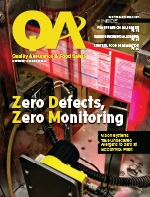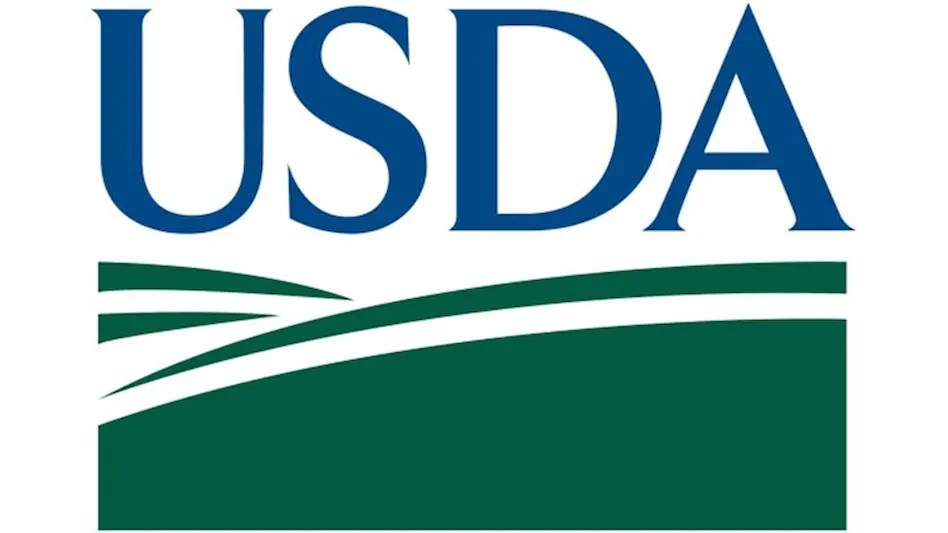Since its January 4, 2011, signing by President Obama, the Food Safety Modernization Act (FSMA) has been a key focus of the industry. While it seems that much of 2012 has been spent awaiting specifics of several important proposed rules, there also have been a number of documents and rules published. When one considers that FSMA includes 90-some deliverables on which FDA is working, that publications must go through a complex review process often including approval by the Office of Management and Budget (OMB) before publication, and that the agency’s budget and resources are stretched beyond capacity, it could even be considered positive that FDA has developed as many published and pending documents and rules as it has.
So how far have we come in the two years since FSMA’s signing? And what are our expectations as we move into 2013?
2012: A Look Back. As of this writing FDA has published eight documents and three rules. However, it also has submitted at least four significant additional proposed rules to OMB, for which a draft or interim rule could publish at any time. Following are brief descriptions of each. (Links to each are available at www.qualityassurancemag.com, Online Extras.)
• Necessity of the Use of Food Product Categories in Food Facility Registrations and Updates to Food Product Categories differs from most guidance documents in that it mandates food categories to be included in food facility registrations. This guidance is related to the Biennial Facility Re-registration process, also mandated by FSMA, which was to open on October 1, but was delayed until the 22nd. The re-registration period is now active, and will probably extend a few weeks into 2013 because of the delayed open; if you are a registered firm you need to re-register.
• FDA Records Access Authority Under Sections 414 and 704 of the Federal Food, Drug, & Cosmetic Act draft guidance makes facility records much more accessible to FDA than in the past. Prior to FSMA, FDA had access to records directly related to a food that was reasonably believed to be adulterated and present a threat of serious adverse health consequences or death to humans or animals. That access is now expanded to include records relating to any other article of food that the FDA reasonably believes is likely to be affected in a similar manner and those for which it believes there is a reasonable probability of similar effects in their use or exposure.
• Establishment, Maintenance, and Availability of Records: Amendment to Record Availability Requirements Interim Final Rule (IFT) and Q&A guidance document provide information on the establishment and maintenance of records, and FDA’s access authority.
• What You Need to Know About Administrative Detention of Foods, published as an Interim Final Rule (IFR) and guidance, is one of the few FSMA authorities that FDA used in 2012. The Bioterrorism Act had given FDA authority to order administrative detention of food if, during an inspection, examination, or investigation, credible evidence or information were found indicating that it presents a threat of serious adverse health consequences or death to humans or animals. FSMA now allows FDA to order administrative detention if there is reason to believe that an article of food is adulterated or misbranded. This IFR again makes it much easier for FDA to detain food than in the past.
• Implementation of the Fee Provisions of FSMA Section 107 provides Q&A guidance on the new fee provisions and plans for their implementation. FSMA gives FDA authority to assess and collect fees for costs related to reinspection of foods, food recall activities when a facility does not comply with a recall order, and importer reinspections. The fees were actually reduced this year, with FDA’s hourly rate if domestic travel is required at $221 (previously $224/hour); and $289/hour (previously $335/hour) for foreign travel.
• Enforcement Policy Concerning Certain Prior Notice Requirements provides guidance on the IFR, Information Required in Prior Notice of Imported Food for which a person submitting prior notice of imported food must electronically report the name of any country to which the article has been refused entry.
• New Dietary Ingredient Notifications and Related Issues draft guidance is intended to assist industry in deciding when a premarket safety notification for a dietary supplement containing a new dietary ingredient (NDI) is necessary and in preparing premarket safety notifications (NDI notifications).
• Fish and Fishery Products Hazards and Controls Guidance updates information on FDA’s regulations for the safe and sanitary processing and importing of fish and fishery products using HACCP methods. The guidance was implemented without prior public comment because the Agency determined that this was not feasible or appropriate, because the information enhances the industry’s ability to protect public health and provides important recommendations for conducting a hazard analysis and implementing a HACCP plan.
In addition to these, FDA fulfilled its mandate to write proposed rules for the Produce Safety Regulation (FSMA Section 105); Hazard Analysis and Risk-Based Preventive Controls (103); Current Good Manufacturing Practice and Hazard Analysis and Risk-Benefit Preventive Controls for Food for Animals (103); and Foreign Supplier Verification Program (301).
However, while each of these rules were completed by FDA long before the January 2012 deadline and submitted to OMB in November or December 2011, as of this writing nearly a year later, all four are still at OMB.
2013: A Look Ahead. While it is difficult to understand or justify the initial lag in movement of these rules from the desk of OMB, I would expect that failure to publish rules during the last six months of 2012 had a lot to do with awaiting the outcome of the presidential election, understanding that much could change if Governor Romney had been elected. With Obama having successfully retained his place in the White House, I would now expect that the floodgates will open, and we will start seeing significant movement of the rules. However, the fact that the election held up the rules makes me believe that there are some major requirements coming that will have significant impact on the industry. If these rules were lightweight and easy—why hold them up?
When will these, and other rules start coming through? If I’m correct about the more stringent requirements, the Administration will want them implemented well before another round of “election fever” begins. I also am sure that while these pending rules were being negotiated with OMB, FDA has been busy developing other components of FSMA such as the third-party audit requirements, Voluntary Qualified Importer Program (VQIP), and sanitary transportation rules.
However, it is important to remember that the process by which FDA is mandated to operate means that it takes several months for rules to become final, even when things move fast. Once a rule is proposed, there is a comment period followed by response to comments and possible amendments to the rule, then a final round of review by OMB. Thus, I can’t see implementation being scheduled any sooner than sometime next year, bearing in mind that once a rule is final, there is usually a grace period for companies to become compliant with the new requirements.
Then there is also the question of funding. FDA is already resource stressed, and it is a great deal less resource-intensive to write rules than to implement them. And with the overall economy in the straits it is in, I don’t see FDA as having the resources to fully implement FSMA rules—which is where user fees, registration fees, and reinspection fees, cited above, will come into play. Athough reinspection fees have been set, user fees, such as those for the VQIP, have not yet been determined, and while FDA does not (yet) have authority to assess registration fees, it most likely will pursue this. Whether Congress will approve registration fees is another matter, and it would not be without some major negotiations.
While we can’t know precisely the full what, how, or when of FSMA, I would advise everyone in the industry to keep your eyes and ears open for agency information, and be prepared. I think the next four years will be like no other period of time for change in food safety regulation. As I said in my most recent newsletter: “We have urged food companies to move forward with FSMA-related planning during 2012. If you were waiting, we strongly advise you to stop waiting because this train is leaving the station and on its way to you!”

Explore the December 2012 Issue
Check out more from this issue and find your next story to read.
Latest from Quality Assurance & Food Safety
- Bird Flu: What FSQA Professionals Need to Know
- Registration Open for 129th AFDO Annual Educational Conference
- Frank Yiannas, Aquatiq Partner to Expand Global Reach of Food Safety Culture
- World Food Safety Day 2025 Theme: Science in Action
- Ancera Launches Poultry Analytics System
- USDA Terminates Two Longstanding Food Safety Advisory Committees
- Catalyst Food Leaders Announces Virtual Leadership Summit for People in Food
- Food Safety Latam Summit 2025 Set for Mexico City





